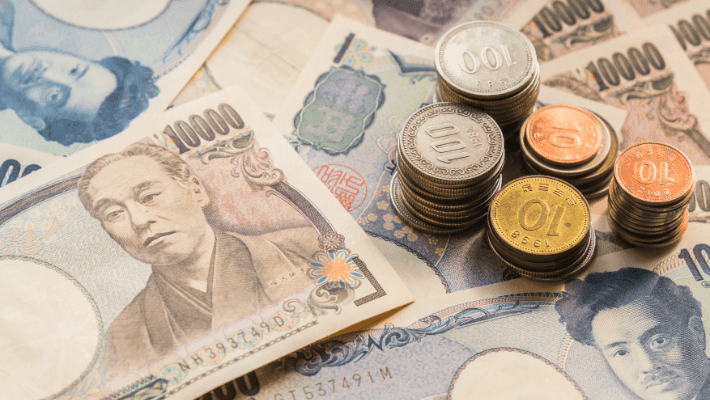
星期五 Nov 24 2023 17:04

5 最小

Tatsuo Yamasaki, a former high-ranking Japanese currency official, recently told Reuters in an interview that he expects the yen will not weaken significantly from the current level of 150 to the U.S. dollar and is likely to regain strength next year.
Yamasaki, who served as Japan's top financial diplomat from 2014 to 2015 in the role of vice minister of finance for international affairs, said that the Bank of Japan (BoJ) might abandon its negative interest rate policy in April at the earliest. This decision could coincide with the assessment of the results of the annual labor talks held in the spring and other relevant indicators.
He noted that last year's weakness in the Japanese yen led to an increase in import prices, contributing to inflation. However, this year, the impact of the weak yen has somewhat alleviated, and the interest rate gap with the U.S., which contributed to the yen's decline, has started to narrow. He added:
"Compared with last year, the implied volatility has become a lot smaller. That will deprive authorities of the reason for intervention."
Yamasaki highlighted that Japanese authorities consider currency market volatility a crucial factor in determining the necessity of intervention. The last intervention occurred in October last year, when the dollar nearly reached 152 yen. Although the U.S. currency approached a similar level this year, Japan refrained from taking action in the foreign exchange market.
Yamasaki played a pivotal role in extensive currency market intervention over a decade ago to counteract a sharp appreciation of the Japanese yen.
The former currency official said intervention by the authorities could not be ruled out. He said:
"From the economic fundamentals point of view, 150 yen is way too weak from reasonable yen levels.”
Japan's top currency official, Masato Kanda, said he was on "standby" just before authorities intervened in the market last year. This year, Kanda also used the term "standby" when the yen weakened near 152 yen.
"First I thought he was joking. But he would have gone on to foray into the currency market if the yen weakened further at that time. That's what I felt after talking with various people," Yamasaki told Reuters.
In October, Japan's core consumer price growth saw a modest increase, after easing the previous month, reinforcing investors' expectations that persistent inflationary pressures could prompt the Bank of Japan to roll back monetary stimulus soon.
According to government data released on Friday, the nationwide core consumer price index (CPI), excluding the volatile component of fresh food costs, registered a year-on-year rise of 2.9% in October. Economists surveyed by Reuters had anticipated a slightly higher figure of 3.0%.
Core inflation had slowed to 2.8% in September from 3.1% in August — the first time it was below 3% since August 2022.
For 19 consecutive months, Japan’s inflation rate has remained above the central bank's 2% target. However, the BoJ has maintained that the upward pressure on costs primarily stems from increased global commodity prices and a depreciating yen. According to the BoJ, these factors do not indicate sustainable price gains resulting from stronger domestic demand and wage growth.
Yoshimasa Maruyama, chief market economist at SMBC Nikko Securities, echoed a view similar to that of Yamasaki in a comment to Reuters:
"I expect the central bank to end negative interest rates and remove yield control as early as in April when they see the results of labour-management wages talks and the ongoing move among companies towards passing on costs.”
In a yen forecast issued on November 24, economists at Frankfurt-based Commerzbank said that the yen to dollar rate would likely depend on the greenback in the near future:
“Although the headline rate rose again, it was less than expected. At the same time, the core rate fell slightly more than expected. All in all, this suggests that inflationary pressures are easing in Japan as well. However, this had little impact on the yen.
Today's inflation figures suggest that the BoJ is unlikely to seek an exit from its ultra-expansionary monetary policy for the time being.
The exchange rate is likely to remain almost entirely dependent on the USD in the coming weeks. The BoJ is probably not unhappy with this. After all, it reflects the market's low expectations for its monetary policy. However, no one from the Japanese Ministry of Finance then needs to argue that a move in USD/JPY is fundamentally unjustified.”
At the time of writing, the dollar to yen exchange rate stood at 149.56, trading mostly sideways. The USD to JPY rate has remained unchanged this week, after the yen gave up its short-lived gains on Tuesday, when it rose to 147 against the greenback.
When considering foreign currency (forex) for trading and price predictions, remember that trading CFDs involves a significant degree of risk and could result in capital loss.
Past performance is not indicative of any future results. This information is provided for informative purposes only and should not be construed to be investment advice.
